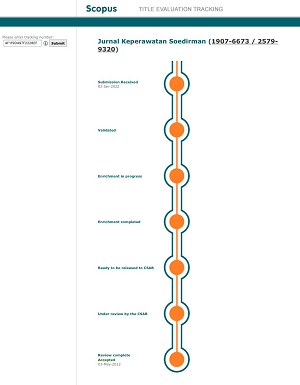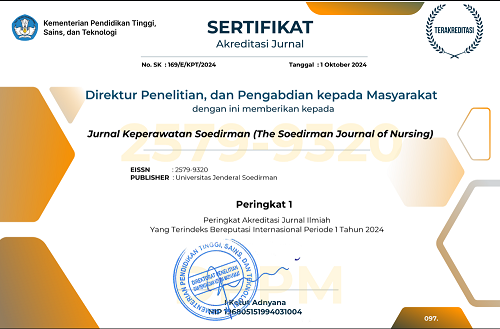Effective Communication Training for Palliative Volunteers’ Motivation for Providing Psychosocial Support to Breast Cancer Patients
Abstract
Motivation plays a critical role in enabling palliative volunteers to provide effective psychosocial support to breast cancer patients. The negative psychological problems patients face often pose challenges for volunteers, as each patient requires a personal approach. Thus, good communication skills are essential, and training in effective communication can enhance volunteers' motivation to optimize psychosocial assistance. This study aimed to measure the effect of effective communication training on the motivation of palliative volunteers in supporting breast cancer patients in Batu City, Indonesia. This research employed a pre-experimental design with a pre-and post-test approach. A total of 45 palliative volunteers were recruited for this study. The training, which included role-playing exercises and group discussions, was conducted over a period of five weeks. Data were collected using the Volunteer Functions Inventory (VFI) questionnaire and analyzed using SPSS with the Paired-Samples t-Test. The results showed a significant increase in volunteer motivation after the training. Statistical tests confirmed a significant improvement in motivation scores after the training. This study highlights the positive impact of effective communication training on increasing volunteer motivation. It underscores the importance of nurses collaborating with volunteers to address the psychosocial needs of breast cancer patients through empathetic listening and effective communication.






.png)




_3.png)

 Kampus keperawatan unsoed
Kampus keperawatan unsoed  Published By Jurusan Keperawatan FIKES UNSOED
Published By Jurusan Keperawatan FIKES UNSOED jks@unsoed.ac.id
jks@unsoed.ac.id

